Appearances play a significant role in how we feel about ourselves and interact with others. Hyperpigmentation, a common skin condition, can greatly impact one’s confidence. In this blog, let’s uncover the reasons for hyperpigmentation on face and get valuable insights on it.
Dr. Archit Aggarwal, a renowned dermatologist in Faridabad, explains:
“Hyperpigmentation occurs when certain areas of the skin produce more melanin, leading to dark spots or patches. It can be caused by various factors and affects people of all skin types. While it is not harmful, it can be distressing for those affected.”
Curious about the factors affecting your skin? It’s time to dive deeper!
Causes of Hyperpigmentation on Face
Let’s uncover the main reasons for hyperpigmentation on face:
Sun Exposure: Ultraviolet (UV) rays trigger the production of melanin as a protective response, which can lead to dark spots or patches.
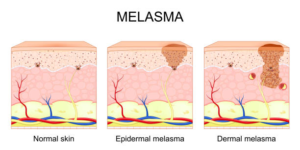
Inflammation: Post-inflammatory hyperpigmentation occurs when a skin injury or irritation from acne, eczema, or other skin disorders leads to darkened skin areas once healed.
Aging: As you age, melanin synthesis can become less controlled, causing age spots, especially in sun-exposed areas.
Fungal Infections: Fungal infections like tinea versicolor can lead to uneven pigmentation, causing light or dark patches on the skin.
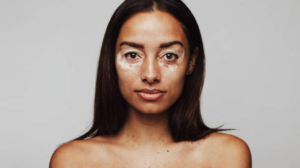
Medications: Certain medications, like specific antibiotics and chemotherapy drugs, are known to have side effect including pigmentation changes.
Genetics: A family history of hyperpigmentation can increase your chances of developing it.
Dr. Archit Aggarwal, a trusted name for pigmentation treatment in Faridabad, says:
“Regular skin assessments and tailored treatments can play a vital role in managing and improving the condition effectively.”
Are you concerned by dark spots on your face? Please consult a certified dermatologist to understand and address the underlying causes.
Are you ready to explore your options in hyperpigmentation treatment for face? Let’s see what approach might work best for you!
Hyperpigmentation Treatments for Face
If you are dealing with dark spots and uneven skin tone, here are effective treatments to consider:

Chemical Peels: Applying a chemical solution that causes the top layer of skin to peel off can remove some of the darker skin cells, revealing lighter skin underneath.
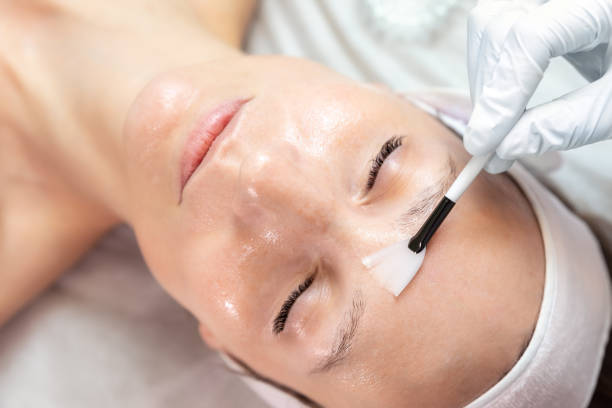
Laser Therapy: Laser treatments target melanin with high-energy light to break down the dark pigments without harming the surrounding tissues. Different types of lasers are available, tailored to various skin types and conditions.
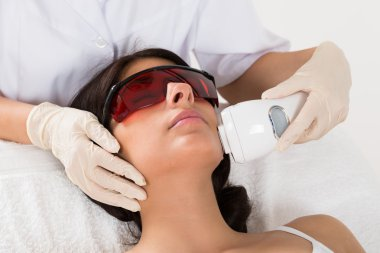
Microdermabrasion: Microdermabrasion is a less invasive procedure that involves exfoliating the skin with tiny crystals to remove the outermost layer of dead skin cells, which can lighten hyperpigmentation over time.
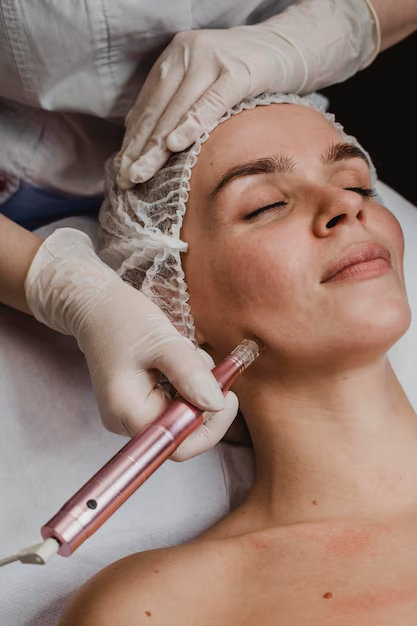
Dermaroller: Dermarolling involves using a device with fine needles to create micro-injuries in the skin, stimulating collagen production and promoting the turnover of skin cells. This can help reduce hyperpigmentation and improve overall skin texture.
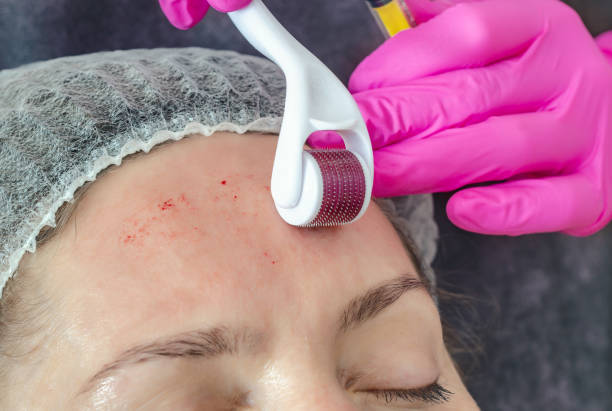
Cryotherapy: This treatment involves applying liquid nitrogen to the hyperpigmented areas, to freeze and destroy the melanin-producing cells (melanocytes). As the treated skin heals, it often appears lighter than before, helping to even out skin tone.
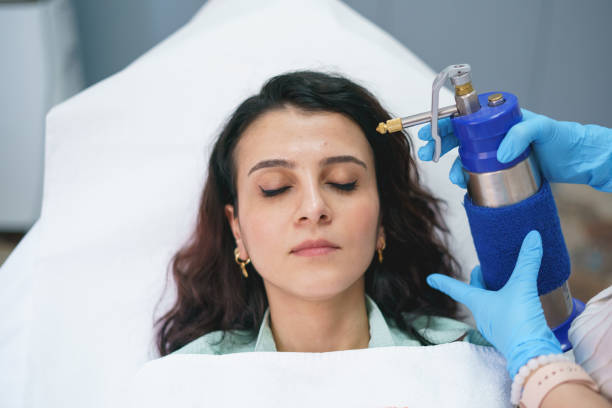
Dr. Archit Aggarwal, a seasoned skin specialist in Faridabad, adds:

“Consistent use of broad-spectrum sunscreen with an SPF of 30 or higher is crucial in preventing further hyperpigmentation and protecting the skin from worsening existing spots. Additionally, incorporating antioxidants like vitamin C in your skincare routine can further protect against UV damage and help reduce the darkening of existing hyperpigmentation.”
Want to keep your skin looking flawless? Let’s delve into the preventive measures!
How Can I Prevent Hyperpigmentation from My Face?
Preventing hyperpigmentation involves a combination of protective measures and lifestyle adjustments to minimize the development of dark spots. Dr. Aggarwal, an eminent skin specialist in Faridabad, shares a few practical tips to manage dark spots on face:
Consistently use a broad-spectrum sunscreen with at least SPF 30, even if it’s cloudy. Reapply every 2 hours or after sweating or swimming to shield your skin from UV rays, the main culprit behind hyperpigmentation.
- Limit your time in the sun, especially during peak hours from 10am to 4pm, when UV radiation is most intense. Use hats, sunglasses, and long-sleeved shirts to shield your skin from direct sun exposure.
- Effectively treat skin conditions likeacne, eczema, or dermatitis. Avoid picking at acne or other skin conditions as it can lead to PIH (post-inflammatory hyperpigmentation).
Use mild skin care products and avoid harsh scrubs or exfoliants that can irritate the skin and trigger PIH.
- Consume foods high in antioxidants, like fruits and vegetables to combat oxidative stress that can trigger melanin production in the skin.
- Drinking plenty of water helps maintain your skin’s health and reduces the chances of skin disorders that might lead to hyperpigmentation.
Conclusion
Skin imperfections like hyperpigmentation can affect our confidence and overall well-being. Achieving an even skin tone is a key aspect of skincare routines, often enhancing natural beauty and boosting self-esteem. Beyond its visual effects, maintaining a healthy, radiant complexion contributes to overall wellness and positive self-perception. In pursuit of flawless skin, many seek solutions to address and manage hyperpigmentation. Fortunately, skin specialists like Dr. Archit Aggarwal, a highly qualified dermatologist in Faridabad can help address these concerns effectively.
If you’re struggling with hyperpigmentation, why not take the first step toward clearer skin? Please contact a dermatologist today to explore your treatment options.
Still have questions? We’ve got answers! Let’s head to our FAQ section.
FAQs
Which deficiency causes hyperpigmentation on face?
A deficiency in vitamin B12 can cause hyperpigmentation on the face. Ensuring a balanced diet with sufficient vitamins and minerals can help maintain healthy skin.
Which foods increase melanin?
Foods rich in vitamins A, C, and E, as well as those containing beta-carotene, can help increase melanin production. Examples include carrots, sweet potatoes, and citrus fruits.
Can pigmentation be removed permanently?
Pigmentation can be significantly reduced with treatments, but it may not always be permanently removed. Maintenance and preventive measures are crucial to keep hyperpigmentation at bay.
Is hyperpigmentation a sign of skin cancer?
While hyperpigmentation itself is not a sign of skin cancer, sudden or unusual changes in skin pigmentation should be evaluated by a dermatologist. Early detection is key in addressing any serious skin conditions.
How long does it take for hyperpigmentation to fade?
The time it takes for hyperpigmentation to fade varies depending on its cause and the treatments used. It can take anywhere from a few weeks to several months to see significant improvement.
Can stress cause hyperpigmentation?
Yes, stress can contribute to hyperpigmentation by triggering hormonal changes and inflammation. Managing stress through healthy lifestyle choices can help improve overall skin health.
Are natural remedies effective for hyperpigmentation?
Some natural remedies, like aloe vera and green tea, have properties that may help reduce hyperpigmentation. However, their effectiveness varies, and professional treatments often yield more consistent results.

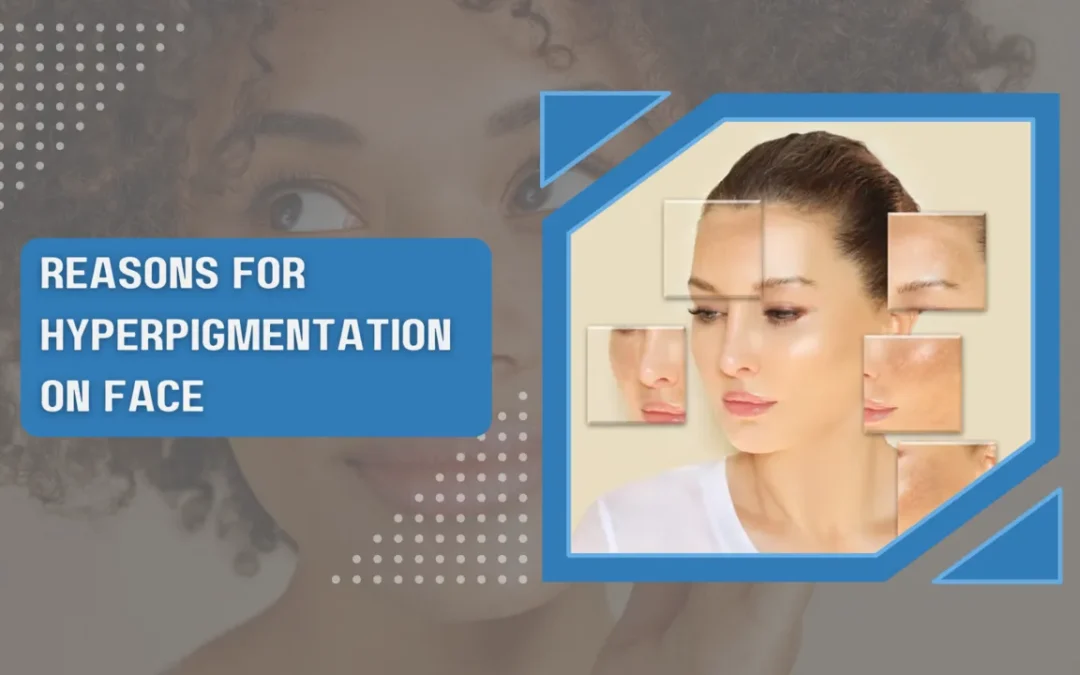
 Consistently use a broad-spectrum sunscreen with at least SPF 30, even if it’s cloudy. Reapply every 2 hours or after sweating or swimming to shield your skin from UV rays, the main culprit behind hyperpigmentation.
Consistently use a broad-spectrum sunscreen with at least SPF 30, even if it’s cloudy. Reapply every 2 hours or after sweating or swimming to shield your skin from UV rays, the main culprit behind hyperpigmentation. Use mild skin care products and avoid harsh scrubs or exfoliants that can irritate the skin and trigger PIH.
Use mild skin care products and avoid harsh scrubs or exfoliants that can irritate the skin and trigger PIH.